Wurth Harkin
Living Patron Wurth R Harkin (a.k.a. The Cobalt Founder, The Machine-Father)
Divine Domains
Tenets of Faith
Physical Description
Special abilities
Mental characteristics
Personal history
Early Life
Wurth Harkin was born to Dyson of Clan Harukin and Kait of Clan Mackinnon in a small village Gondsholm on the Chilldew Plateau. Gondsholm was the seat of Clan Harukin's regional power, but given the low population of humans on Planet Evermorn at the time - by some estimates, as low as 100,000 individuals - it was still quite a rural and tradition-oriented place to grow up. A smarter-than-average child, Wurth eagerly learned about the religion, healing, and alchemy traditions of his people at the feet of his father, Dyson, who was the shaman and medicine man of the village. In Wurth's early days, the technological level of Clan Harukin (along with most Evermornan tribal units) was such that iron-based industry was just starting to come to the forefront; the ruins in the surrounding countryside were of prior bronze- and pottery-based civilizations. Nevertheless, the strange writings, astronomical diagrams, and occasional artifacts drew young Wurth's attentions, and he spent many hours pouring over the contents of these ruins, an activity which would go on to shape Wurth's perspective on his place in the cosmos outside of that described by his parents (see Religious Views). At 16, Wurth met and fell in love with Catherine Jyormund, one of the daughters of a local forrester. The young couple proved inseparable, and their parents consented in principle to a wedding between them once they each came of age. Around this time, Wurth also befriended Shank Moswen, a similarly clever youth whose primary claim to notoriety was the ability to bypass the pitfalls, dangerous resident fauna, and even intentional traps lying in wait in the ruins the trio liked to explore. Shank's proclivity towards violence was not so apparent at this time, but Wurth saw and accepted the darkness in Shank's soul as potentially something that could be fostered in a more productive direction; this acceptance made Wurth one of the only people Shank felt comfortable around, and the two were fast friends.Enslavement
On the eve of Wurth and Catherine's wedding, the peace of Gondsholm was shattered by the arrival of surveyor starships from the Chitiquish Consortium subsidiary hive known as Iron Talon Mining Concern. Iron Talon had recently acquired colonization and mining rights in the nearby Kavoris System, but there was a catch: the iron-based biology of the chitiquish was incompatible with the terrestrial, oxygen-based environment of Kavoris 3, the sole planetoid in the Kavoris System worth plumbing for its mineral wealth. To this end, the Iron Talon colonial fleet stopped by the Evermorn System to pick up humans from Planet Evermorn for use as labor animals. It should be noted that, as of this time, all major sentient species known to the Consortium were eusocial in some fashion, including the vbyifabid with their Flockmind and the arcopel with their collective intelligence derived from computer networking brain implants. For this reason, the chitiquish regarded humans as sub-sentient - despite the presence of structures and limited tool use - as their perception of what constituted sentience was skewed by experience. As such, trained human 'herds' would make ideal chattel workers for use on the oxygen-rich Kavoris 3. Many Gondsholm residents died in attempting to repel the technologically superior chitiquish invaders, but Wurth, Shank, and Catherine were at the ruins at the time enjoying what their culture considered the last real day of Wurth and Catherine's youth. When they saw what was happening back home and returned to help in the defense, they were overwhelmed, captured, and taken with many other villagers back to the colony fleet waiting on orbit. The prisoners were frozen, with many succumbing during the cryoprotectant infusion process due to the chitiquish's incomplete understanding of human physiology. It would be many years before they would see Evermorn again.Play it cool, Wurth. They might look like bugs or lobsters or something, but sure as shit they have a back. And they'll turn it soon enough...The abducted Evermornans were eventually landed on Kavoris 3, which had been redubbed Ferrous Minor by the Chitiquish as the humans had slept the lightyears away. While being trained to work in the mines aboard the colony fleet's landed livestock haulers, Wurth and the other Evermornans proved more difficult to control than their chitiquish handlers were expecting. Frequent attempted uprisings led to increasingly draconian measures being imposed upon the captives, with some Concern members privately beginning to suspect that the humans were more wily than original assessments had predicted. There were countless great and small escape attempts using increasingly sophisticated methods as the humans learned as much as could be expected about chitiquish technology and tactics. Wurth and Shank would gather with fellow Evermornan slaves, including the later famous Aika Fenmount, Rachet Elwood, and Laup Garolla, to devise these plans in secret. Wurth emerged as a competent leader during this tumultuous time and gained the respect of his crew through his resourcefulness if not his charisma. During one such escape attempt, when Wurth was 20, Catherine was killed by a chitiquish handler after she hamstrung four other handlers and very nearly reached a door control. Wurth and Shank were both devastated by the loss of their longtime friend and, in turn, abandoned any pretext of trying to escape without bloodshed: when a chitiquish entered the livestock paddock, that chitiquish became prey. This incident, more than anything else, converted Wurth into a dedicated bigot against chitiquish, a position which he only began to abandon decades after his liberation when it became impolitic on the interstellar diplomatic stage. The chitiquish, for their part, noticed a pattern where Wurth himself appeared in the context of these increasingly violent escape attempts and reasoned - again, from a flawed understanding of human social dynamics - that the young Evermornan was some sort of 'alpha' for the human 'pack.' The chitiquish handlers selected Wurth for cybernetic subversion by implanting him with an interface that would connect his brain directly to one of the colony's many artificial intelligence cores. While the artificial intelligence did start conditioning Wurth's outward behavior and providing him with equipment training to disseminate to his fellow workers, it wasn't aware that Wurth's mental discipline had been honed by religious practice (see Religious Views) such that he could scheme in secret even while being forced to outwardly profess neutrality towards his captors. While being implanted with a subsystem of the alien AI did serve to severely constrain his ability to conspire with his fellow slaves, it also gave him access to certain technological databases deemed important for the slaves' intended use of chitiquish mining equipment. With time, this connection opened the young Evermornan's mind to the posibility of even more powerful technological secrets should he ever manage to break free of AI control. An orchestrated cave-in at a dig site severed the microwave link between Wurth's implant and the central AI core. He used what he had learned to insulate his mining helmet against signals in the dark of that cave, allowing him to make use of the knowledge and expanded cognitive power granted by the implant without being under the remote control of the AI once the cave-in was resolved. The timing proved fortuitous, as the Concern colonial authority was negotiating a trade agreement with a passing Vbyifabid Family-Flock long-endurance cruiser at the time. The vbyifabid crew were present to witness the beginning of Wurth and his crew's latest slave uprising. This created an immediate rift between the vbyifabid and their chitiquish hosts. The vbyifabid, as a species united by a natural collective consciousness in addition to independent consciousnesses, are famous for their compassion towards any being capable of bearing emotions. For a vbyifabid, witnessing the suffering of a thinking creature provokes immediate empathy, as they can actually feel the pain of their conspecifics and reflexively anticipate from other social species, even if they don't share a similar link. As such, the vbyifabid cruiser made appeals to the chitiquish to release their captives while secretly dispatching a covert operations team - including the now-famous operatives Goh'ro and Myrdin - to provide material support to the slaves. It was crucial that the vbyifabid remain undetected during this intervention, as their peace with the chitiquish was fragile, but they deemed the moral consideration for Wurth and his people more important than the stern words they'd hear at Valleybridge about the matter some decades on. With the assistance of Myrdin and Goh'ro, Wurth, Shank, Aika, and the others managed to overcome the handlers and damage the power mains leading to the colony, finally eliminating the AI's hold over Wurth's brain and allowing the now-augmented Evermornan free to lead his people off the planet. The mixed human-vbyifabid crew located the ship on which they had been brought to Ferrous Minor and stole it, taking off and breaking orbit while agents of the vbyifabid already in orbit scrambled the colony's orbital defense systems. Finally and at great cost, the Evermornans and their new companions were free to make their own way in the Sealed Kingdoms.
Return to Evermorn
On the way back to Evermorn, Myrdin offered to help Wurth remove the AI uplink implant. Wurth refused, instead asking that the connection to the old AI be severed and the implant be used to give him high-level connection to the ship's own computer core. Myrdin agreed, and through a lengthy and risky cybernetic procedure, Wurth was granted the access he desired to the knowledge and increased cognitive abilities that came with such a connection.On it, guys. Ok, so... its... that way?Wurth spent the ensuing 15 year journey voraciously consuming knowledge and performing what experiments he could on himself to further improve his own cognitive prowess. He shared his growing knowledge of medicine, physics, and astronautics with his crew and compared notes with his vbyifabid friends, who had opted to accompany the humans back in the hopes of ensuring no further enslavement attempts were made by Iron Talon. By the time Wurth and his crew returned to Evermorn, they had significantly grown both in population and in technological expertise. While Gondsholm had slid into irrelevance on the geopolitical stage in the decades since Wurth and the others were taken, Clans Harukin, Jyormund, and Moswen were still active. In order to give the Evermornans the best chance possible of resisting future alien incursions, the crew decided that they should take the opportunity to consolidate polities into larger, stronger units and distribute scientific and technological knowledge to the people in safe, controlled bites. To this end, the crew returned to their respective tribes and organized diplomatic meetings between the clan heads, creating the early form of the Cobalt Protectorate. The Cinnabar Hegemony and Republic of the Obsidian Shores formed in response to percieved Cobalt expansion (see the Hegemony and Republic articles for details). Wurth was influential during this time by penning the Code of Evermorn, establishing the first contingent of Cobalt Knights, and advising Shank and others in their efforts to bring about the new Protectorate. During this time, Wurth aged as most humans do, but his access to the incredible technology of both the chitiquish computer archives and his vbyifabid friends allowed him to cheat biological death on multiple occasions by repairing or replacing failing organs with cybernetic augmentations. While Wurth would eventually become more machine than man, his history of assistance towards the humans on Evermorn meant that he was regarded with increasing reverence despite his increasingly non-human appearance and reliance on equipment to remain alive. For those who accepted the offer, Wurth extended the benefits of his biomechanical discoveries to his closest friends, thereby extending their lifespans as well.
Revenge and Diplomacy
Once the situation on Evermorn was suitably stabilized, Wurth realized that there were still more threats to humanity to be dealt with in the Sealed Kingdoms. Furthermore, from what Myrdin and Goh'ro had mentioned, there might be other human and near-human cultures in the surrounding star systems which remained uncontacted, and these could prove valuable allies or in need of the assistance only another group of human spacefarers could provide. To this end, Wurth took a picked crew of volunteers on an extended exploration mission with no defined ending in sight: The Harkinite Expedition.Perhaps I understated the ramifications of this course of action, fellows. This is going to bring asteroids down on your heads if you aren't careful - more, if you're not lucky. I think you'd better come with us before heading out...The first order of business, however, was a matter of personal vengeance. Wurth had not forgotten the suffering inflicted upon him and his people by the chitiquish on Ferrous Minor, had not forgotten the fact that his wife lay dead in some compost heap on that alien stronghold so close to his own world. Wurth began the expedition by launching relativistic projectiles at Ferrous Minor - tipped with cobalt radioisotope as a 'calling card' - in violation of the Valleybridge Accords (see Failures & Embarrasments). This would ultimately become a moment of personal moral embarrasment for Wurth, but in the immediate term, it forced Myrdin's hand. Wurth and his crew had to be forced to visit Valleybridge and sign the accords before the chitiquish retaliated. The vbyifabid were understanding of Wurth's desire for revenge, but also horrified. The laws against the use of 'R-bombs' were followed universally by those species capable of fielding the for one simple reason: all who hadn't obeyed them had destroyed themselves or eachother in preceeding millenia. The humans, aggrieved as they were by what had been forced upon them by uncaring elder members of the interstellar community, had to be brought to heel. As such, the first journey of the Harkinite Expeditions (other than the acceleration phase for the projectiles, of course) was to Valleybridge to appear before the Valleybridge Consensus. This was the first exposure of humans to species outside of the major three players - vbyifabid, chitiquish and arcopel - on the interstellar geopolitical stage. Wurth was glad to sign the Accords in exchange for the recognition of humans as an independent, sentient species and certain offers of protection in the short term, but he also made it known that he was prepared to defend Evermorn with all apporopriate measures available to him. This threat notwithstanding, the still-fresh Cobalt Protectorate was inducted into the Valleybridge Consensus as a member state.
The Harkinite Expeditions
Over the course of the next several centuries, Wurth and his crew traveled to various stars indicated by either Myrdin and Goh'ro or by long-range sensor sweeps to potentially harbor pockets of human and near-human life. Many of these worlds proved dead by the time the Expedition arrived, increasingly filling Wurth with the sense that the universe was a dangerous place. Much later, during one of his return visits to Evermorn, he would establish the precursors to the Evermorn Strategic Colony Initiative as a means of potentially preventing his own people from facing a similar fate.Lepidos
Eventually, the Harkinite Expedition did discover a planet still inhabited by a near-human species. Lepidos was a river-crossed, sandy world orbiting a relatively long-lived orange star around 5 lightyears from Evermorn. Lepidos was occupied by a human-descended species known as the Lepidosians - urbanized subjects of the Arcopel gene drive who had successfully developed technologies like electricity, internal combustion engines, and radio communications. Lepidos was ruled by a semi-theocratic oligarchy known as the Occult Fraternity. The Fraternity ruled through a highly-ritualized civic religion that disposed of dissidents and the monotheistic Northern Lepidosians through a system of state-sponsored propaganda, enslavement, and human sacrifice. While Wurth and his crew were initially pleased to open a diplomatic dialogue with the Magocracy, they quickly came to dispise the autocratic regime because of their own history as slaves under the boot of the Iron Talon Mining Concern. Wurth and Shank met in secret with the Northern Lepidosian insurgency and helped them launch a successful revolution against the Magocracy. The loyalists-turned-rebels Kedri Kek-Pensh and Reed Vangard were instrumental to the war effort, becoming friends with the Evermornans over the course of the wwar. The sitting ruler of the Magocracy - one Archmage Elikaias Martram - was taken prisoner by the Evermornans while equatorial capital cities were bombarded with nuclear weapons from orbit.Old friend, sometimes I think you're like an axe when a scalpel would do...While Wurth and Shank's decisive actions earnd the Northern Lepidosians their liberty, it also left the environment polluted and the social fabric of Lepidos in tatters. Seeing his Lepidosian compatriots struggling as they sought to reestablish order instilled in Wurth a sense of the atrocity he had committed, and he made a vow to show more restraint in the future (see Failures & Embarrasments). In time, a few of the largest settlements banded together to form the League of Lepidosian City-States. The League, in turn, became the first non-Evermornan member of the Cobalt Protectorate. Wurth left a proxy (see Special Abilities) and any members of the Expedition looking to settle down on Lepidos to continue the rebuilding efforts and to establish a permanent embassy on Execution Hill. This site was symbolic, as it had been the site of many human sacrifices before the Magocracy fell. Conversely, Lepidosians eager to explore the stars were integrated into the Expedition, inaugurating the first multicultural leg of the journey.
Feldea
Travelling the star lanes once more, the Harkinite Expedition came across the industrialized planet of Feldea. Feldea was a mostly-water world teetering on the brink of ecological collapse, with the various nations of the world descending into hedonism and moral decadence on the understanding that their days were numbered. Wurth could not stand to see another near-human species die out, so he pressed for the Expedition to intervene. The Feldeans were a human-descended people who, like the Evermornans, came from a planet that had yet to establish a globe-spanning government. The polities of the Feldeans were matriarchal monarchies loosely based on the eusocial structure of bee hives, with disposable male consorts fighting over queens who, in turn, fought amongst their siblings on the geopolitical stage. Wurth and the Harkinite Expedition made first contact with an intergovernmental diplomatic organization called the Federated Queendoms of Feldea, who claimed to speak on the behalf of Feldeans everywhere. The Federated Queendoms were eager for the Expedition's assistance. Wurth made the wise decision to employ Aika as the primary negotiator for the Expedition in Feldean space, where she successfully negotiated the planet's induction as the second non-Evermornan member state to the Cobalt Protectorate. Again, Wurth left a proxy and a contingent of voluntary settlers behind while taking many Feldeans with him.Maybe it would have hurt you to witness us, but it wasn't your duty to intervene. What possible reason could you have for what you have done than a simplistic, egotistical desire for control?Wurth's deeds on Feldea proved controversial not because of his overzealous prosecution of a war, but for just the opposite reason: by working to save the planet when most had accepted their fate, many Feldeans felt that the Cobalter and Lepidosian 'saviors' had, in fact, robbed the people of their right to chose the time and manner of their own demise. Others complained that they had to stop partying like the end was coming and put in the challenging, expensive work to save a world that was, at that point, marginally habitable at best. To the present day, Wurth sometimes grapples with the ethics of the Feldean operation, but feels that it was the right decision overall to not let another human subgroup slide into extinction.
Expedition's End
After an extended period of searching for more lost 'brothers and sisters' amongst the stars and amongst the generational turnover of his crew, Wurth, Shank, and Aika decided it was time to bring the Harkinite Expedition to a close. After the Mind Cataclysm had shaken the Flockmind throughout the Sealed Kingdoms - not to mention the accruing ravages of age and hard labor - it was also time for Goh'ro and Myrdin to return to Planet Vbyifabid. The two aliens wished their human friends the best as they departed, heavy with the knowledge that they would likely never see their friends Wurth and Shank in particular again except as echoes in the Flockmind. Wurth, too, was ready to retire from the physical work of the Expedition, though this was more because of how much he had changed in the time spent between stars. Wurth's biological systems had, in time, given way entirely to artificial replacements; he had become, in essence, a human-like artificial intelligence based on the original man.Building a Matrioshka Brain
Wurth and those whom he had similarly upgraded over the centuries set their sights higher and further into the future. To this end, they struck out to find a suitable celestial body around which they, in secret, could build a megastructure that would give them room to grow, think faster, and perhaps create more of themselves: artificial offspring for artificial Evermornans. The crew used a heretofore uncharted red dwarf as the seed of an artificial black hole, building a swarm of satelites around the object that would gather power from the infalling mass and outgoing radiation. This power was used to run immense computer banks to house their consciousnesses as they built, planned, and reproduced in preparation for what Wurth called the 'Grand Project': a quest to find a way to preserve the sentient species of known space far into the indeterminite future (see Accomplishments & Achievements).Ladies and gentlemen, I humbly offer you eternity.While he and his proxies check up on the Cobalt Protectorate from time to time, the matrioshka brain is where Wurth lives now. In the present day, Wurth spends his time working and planning for the future in the way that only an ancient artificial intelligence can, creating artificial worlds to test wild hypotheses which might unlock some solution to the problem of inevitable heat death and the extinction of biological life in the universe.
Accomplishments & Achievements
Failures & Embarrassments
Mental Trauma
Morality & Philosophy
Taboos
Personality Characteristics
Virtues & Personality perks
Vices & Personality flaws
Social
Religious Views
Relationships
History
Wurth and Catherine were deeply in love with one another and would have had a happy life together had their capture at the hands of the Iron Talon mining Concern not cut their family plans short. Catherine would ultimately die at the hands of their captors, turning the previously peace-loving Wurth into a man hell-bent of revenge. Even a millenium on, Wurth remains single because he is loyal to Catherine in spirit despite the veil of mortality between them.
History
Wurth and Shank are, in many ways polar opposites of one another. While Wurth is the measured, intellectual type, Shank is proactive, confident, and not affraid to use violence. The two do share a common goal, however, in protecting humanity from the threats they face in a hostile cosmos. The Shadow Smiths of Evermorn, a militant sect of Ancestral Patronism, regard the two men as the greatest Ancestral Patrons of the Evermornan peoples. Shank was one of the first other humans to allow Wurth to install the brain-computer interfaces and other cybernetic prostheses which would eventually lead to both becoming artificial life forms at the end of their greatly-extended biological lives. Now, within the Matrioshka Multiverse, Wurth and Shank are among a select few founders who still manage the day-to-day affairs of the installation. As always, Wurth provides the technical and social know-how to make the matrioshka run properly, while Shank and his cadre of problem-solvers handle security and defense concerns.
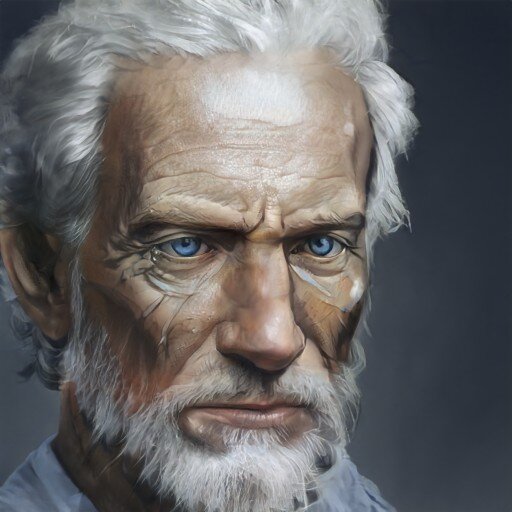


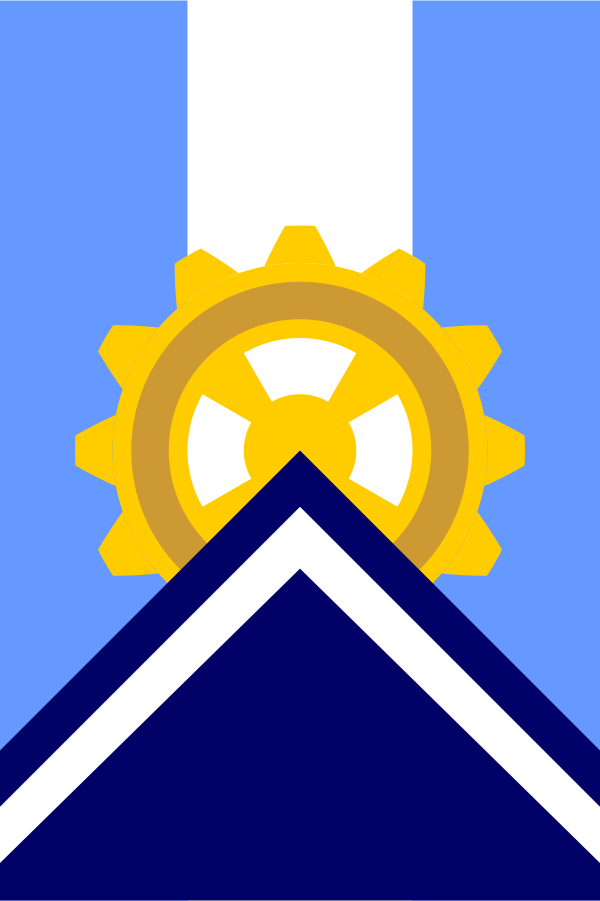
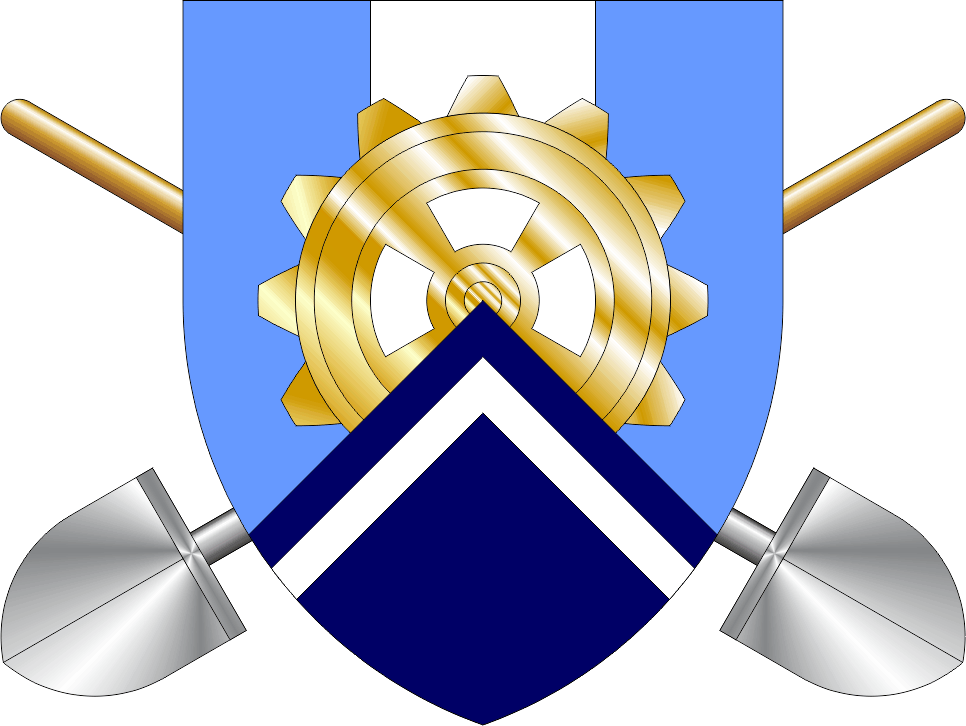
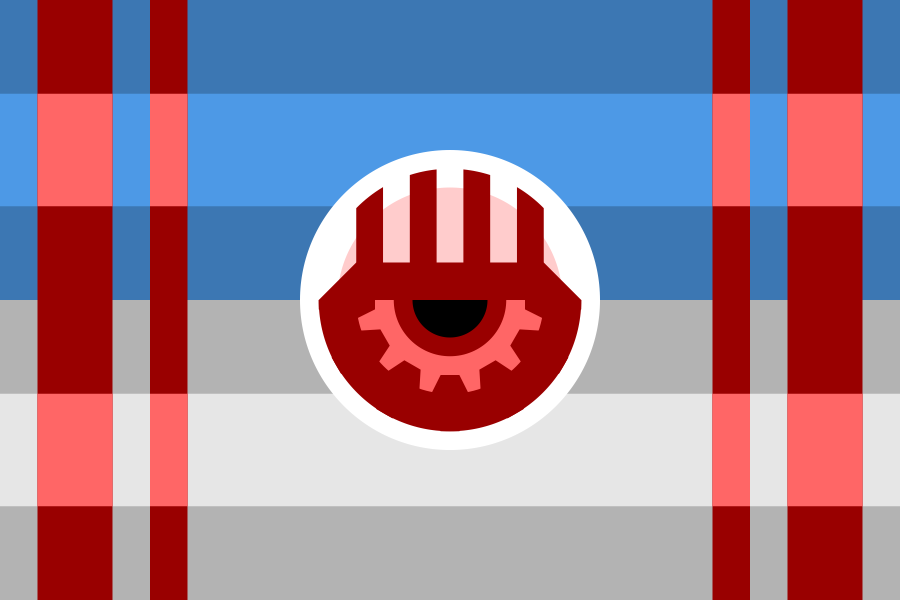
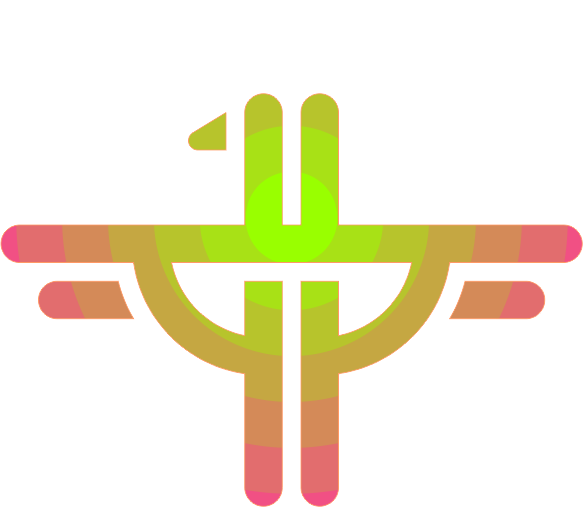
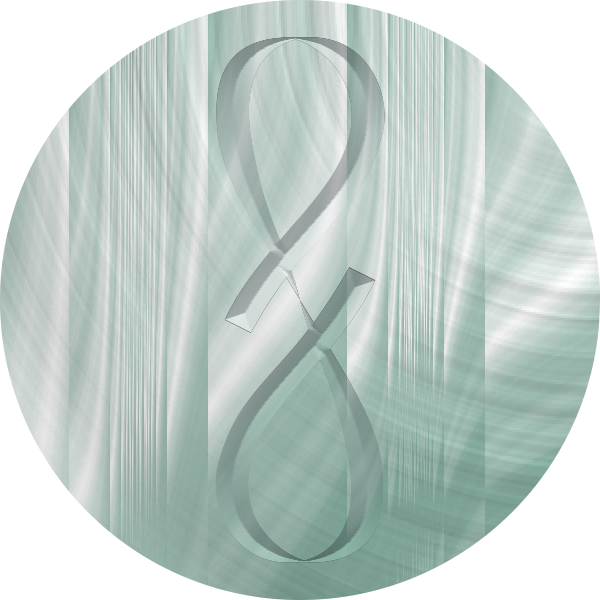

Comments
Author's Notes
Behind the Scenes
Some of you may have noted that this 'Wurth' guy's name turns up in my own user name. There's actually a bit of real-life deep lore to this that I feel like sharing with you today. Wurth Harkin started as one of my very first Dungeons & Dragons characters all the way back in 2005 when I was still invested in my (ultimately doomed) quest to get a mechanical engineering degree. He was a cleric of Gond, and later a Techsmith, in the 3.0 edition of the Forgotten Realms. Wurth was a little bit of a self-insert at the time, but eventually me and my friends took him and their own characters through so many different wacky adventures that he grew into something else entirely. His story arc was one of reclaiming a lost homeland while overcoming an irrational predjudice for an 'enemy' that turned out not to be a monolith after all. He was a guy who saw the labor of crafting and the methodical, scientific examination of nature as a means of better understanding the divine. You can see some of this early influence coming through in the religion of Forgism and Knappism in the Manifold Sky setting. Much later, when I picked up the gumption to write a science fiction story that would become the Sealed Kingdoms setting, I applied the fantastical stories of Wurth, Shank, Myrrdin, Goro, Rachet, and more - some of the party members of those original adventures - to the ever-expanding mytho-historical background of Ancestral Patronism. By extension, some of these characters have seeped into the settings which depend on the Sealed Kingdoms setting to exist, such as the Manifold Sky setting (Ixovaquitetsu, Ixaumaika, Arxid, and Miko) and Twelve Sides/Kit's Crater (Cody, Reed, Lilly, and Bill). These characters had become archetypal among our game group, and we'd always enjoy inserting clever referrences to eachother's characters into our subsequent games. For example, we had a recurring meme that Thetsu - one of my brothers' characters and inspiration for Ixovaquitetsu - was this chaotic, eternally-laughing monkey-god who transcended settings and was really behind any lore-unfriendly shenanigans we got up to. My desire to write about the Sealed Kingdoms would eventually waver when I got about halfway through my first draft of The Fortress of Salt and realized that there was no way that what I had would work in print. It was time to 'kill my darlings,' as it were, and I moved on to other projects. Wurth would still occasionally come up in referrences, but I had honestly never expected put him into a cannon work until fairly recently as of the time of this writing. When I discovered World Anvil and realized that I needed a pithy pseudonym under which to foist my trivial scribbles onto an unsuspecting world, I picked as a pseudonym the one character that'd always been there at the table with me in spirit - the one character whom I never expected people would find out about except in amusing anecdotes. Wurth. As it happened, writing out the Manifold Sky setting reinvigorated my desire to write some science fiction. And so, it came to pass that I wound up writing about this character despite the cringy appearance of his being a self insert. Which is ironic, because he was originally exactly that. So, next time you find yourself reading something clearly hammered out at 2AM on a Tuesday by someone riding the last jitter of a caffiene and sugar high - and you're puzzling over ersatz grammar, run-on sentences, and occasionally obtuse talk about non-Euclidean geometry honestly far above the author's own intellectual grasp - remember that it all started because some sweaty nerd came up with a guy that almost could have soloed City of the Spider Queen because we didn't realize how stacking armor class bonuses worked in a long-dead edition of a now-popular tabletop roleplaying game.